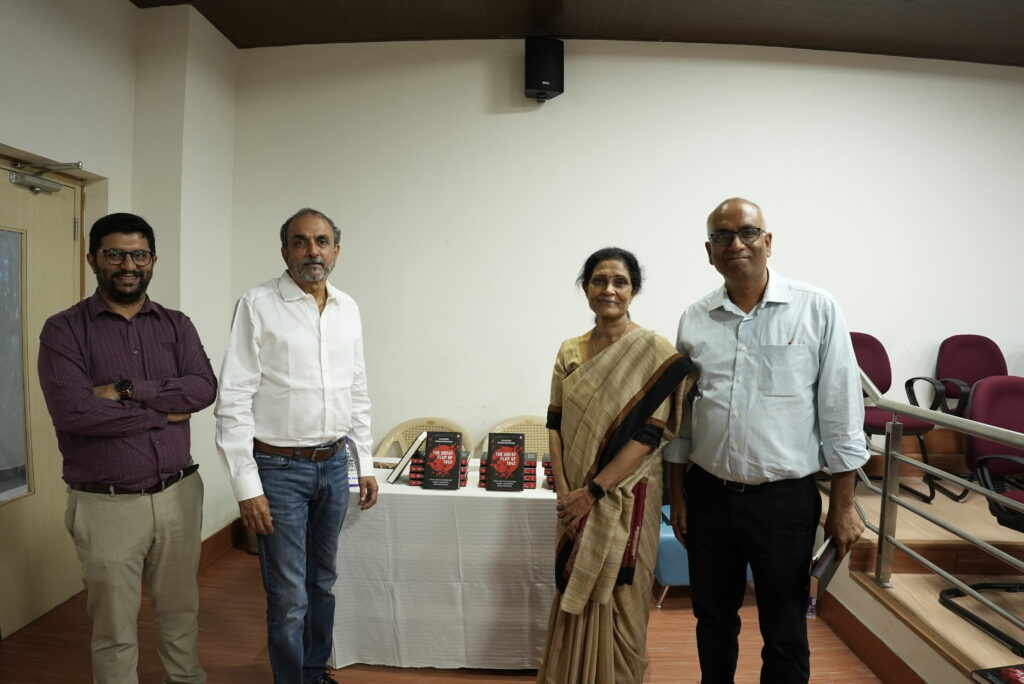15 February, 2024, Sri City: Krea University hosted the book launch of The Great Flap of 1942: How the Raj Panicked over a Japanese Non-invasion authored by renowned journalist Professor Mukund Padmanabhan, Distinguished Professor of Philosophy at the School of Interwoven Arts and Sciences (SIAS), Krea University, and former editor of The Hindu and The Hindu BusinessLine, on the campus.
The launch unfolded with opening remarks by Professor Nirmala Rao, Vice-Chancellor of Krea University, as she spoke highly of the compelling storyline. This was followed by an engaging hour-long conversation between Professor Mukund Padmanabhan and Dr Aashique Ahmed Iqbal, Assistant Professor of History at SIAS, Krea University as they delved into the intricacies of the book, holding the audience in rapt attention. Attendees eagerly participated and posed insightful questions.
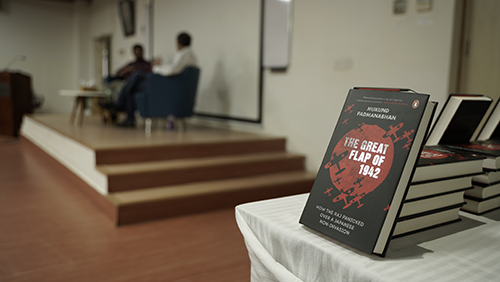
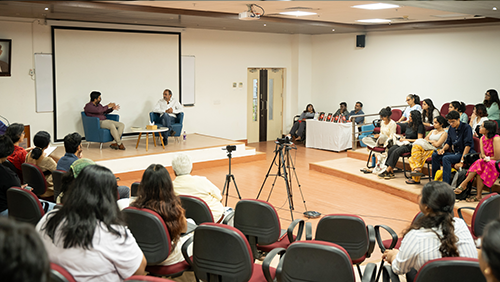
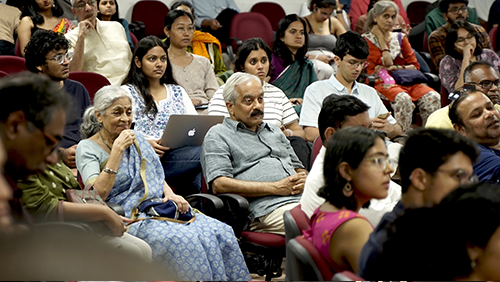
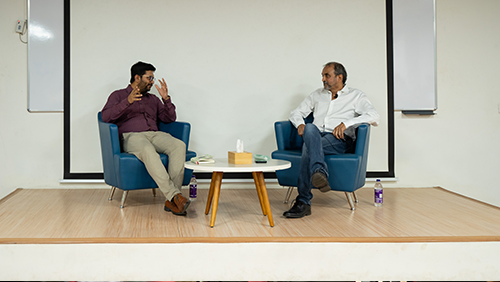
Dr Prithvi Datta Chandra Shobhi, Dean and Associate Professor of History at SIAS, Krea University provided closing remarks, offering valuable insights for history students gleaned from the book’s contents. The session culminated with a book signing session.
Published by Penguin Random House, The Great Flap of 1942: How the Raj Panicked over a Japanese Non-invasion presents a narrative history of the Japanese attacks in Southeast Asia and their impact on India. The book sheds light on a neglected and scarcely known period of history ― between December 1941 and mid-1942 ― when India was gripped by panic, jostled between the rumours and misjudgements by the British and their mistaken belief that Japan was on the verge of launching a full-fledged invasion.
The book demonstrates, quite astonishingly, that the Raj cynically encouraged the exodus (of Indians and Europeans) from both sides of the coastline to ‘safer’ inland regions and contributed to the repeated cycles of rumour, panic and flight. It also reveals how the shadow of the Japanese threat influenced the course of nationalist politics, altered British attitudes towards India and charted the course towards Independence.
It has received many captivating reviews, including those by William Dalrymple and Gopalkrishna Gandhi. Dalrymple’s description of the book as a ‘superbly well researched, tightly constructed…..and pinned to the page in stylish, witty and evocative prose’, testifies to Professor Mukund Padmanabhan’s depth of scholarship and academic excellence.
